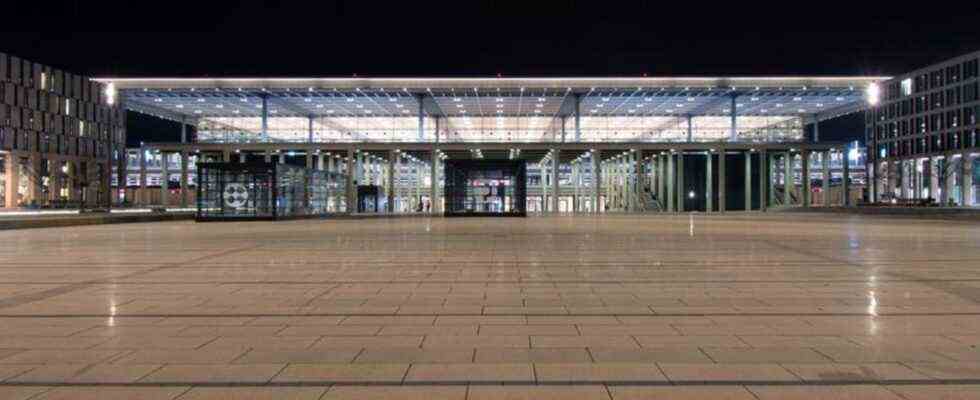Capital airport
After a year, BER Airport is still looking for a connection
The main building of Berlin Brandenburg Airport. Photo: Paul Zinken / dpa
© dpa-infocom GmbH
It took years to wait for the new airport in the capital, but now it has actually been online for twelve months. However, this was not how anyone had imagined the first year.
First emptiness in lockdown, then holiday chaos in autumn: the first year of operation of the new capital’s airport was a year of extremes for passengers and employees.
“So far there has not been a single day of normalcy at BER, as we know it from before the pandemic,” said airport boss Aletta von Massenbach.
Eight million passengers have used the new terminal so far – in 2019 there were more than four times as many in Berlin. New connections should bring more momentum in the next year. A better connection to the world, that’s what the companies in the region are also counting on.
Building scandal
After an unprecedented construction scandal with many difficulties, the airport opened on October 31, 2020 – nine years later than planned. During the waiting period, the economy ran with the handbrake on, said Stefan Franzke, head of the Berlin Partner development company. After the pandemic, things really have to get going. The fact that Tesla is building its car factory for up to 12,000 employees in Brandenburg near BER gives the region hope.
Brandenburg’s economic developer Steffen Kammradt expects a surge in growth. “For a global company like Tesla, an international airport on the doorstep with direct connections to other continents is a huge plus for the location.” But there are only a few of them at BER. Too often business people first have to fly to Frankfurt or Munich and change there if they wanted to go to Berlin, so it is said again and again from the economy.
Most of the BER passengers flew in the low-cost airline to Mallorca and Antalya in their first year. Direct connections in business centers outside Europe are rare. New York and Washington are on the flight schedule next year. “We hope for more long-distance connections in all directions,” said von Massenbach.
When construction began, Berlin and Brandenburg had promised up to 40,000 new direct and indirect jobs around the airport. According to the Brandenburg Economic Development Agency, the airport had the hoped-for job effects even before it opened. Between 2013 and 2020, around 45,000 jobs were created within a radius of 30 kilometers.
However, it is difficult to say whether this was always related to the airport. The number of people in employment has generally risen sharply in the same period, according to official statistics across Berlin by just under 290,000, in Brandenburg by a good 37,000.
“In the first year of BER, 70 airlines took off to more than 160 destinations,” said von Massenbach. Before Corona, there were 195 destinations at the old Tegel and Schönefeld airports. Those in charge are also still working on getting the terminal out of its teething troubles.
“There are still one or the other technical problem, for example the defective treadmill,” said von Massenbach. “We also need more seating in the terminal.” The airport boss spoke of readjustments, as they are also with other objects of comparable size, such as a new train station or shopping center.
“We will also continue to improve the passenger processes,” she assured her. There had been chaotic conditions in the terminal during the autumn break. Personnel shortages and more complex check-ins in the pandemic had led to long waiting times in front of the counters at BER. Some passengers even missed their flights.
Signage has now been improved, and in future passengers in queuing areas will also be better informed about waiting times. Passengers expected a perfectly functioning airport, said von Massenbach. “Most of the passengers in the last 12 months have experienced a BER that works as well as is possible under Corona conditions.”

